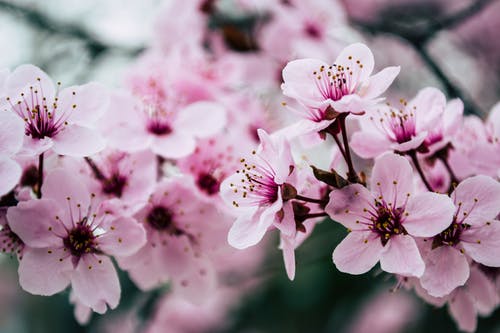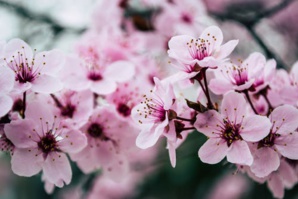Kyoto’s famous cherry blossoms that paints a pink landscape came into bloom on “March 26” which marks the “earliest date” of blossom “in the 12 centuries since records began”, revealed an University of Japan.
According to an environmental science professor, Yasuyuki Aono from the Osaka Prefectural University, compiling “a database of records of the full blooms over the centuries”, the early flowering is a climate change indicative. 2020 recorded some highest global temperatures and became the “hottest year ever” as per World Meteorological Organization’s data. In Aono’s words:
“As the temperatures rise the onset of flowering is earlier”.
Moreover, the records of Osaka University include Imperial Kyoto’s documents as well as diaries from medieval era. Japan and cherry blossoms have shares “long historical and cultural” links besides announcing the arrival of spring and providing inspirations to “artists and poets through the centuries”.
In present times, people in Japan enjoy “hanami” parties under the cherry blossoms which are “often well lubricated with sake and can last for days”. As the emergency restrictions as an attempt of curbing the spread of coronavirus were eased, people from all over the country “flocked to popular viewing locations last weekend”. However, the size of the crowd was lower than earlier years.
While, Reuters reported:
“Kyoto, no longer the Japanese capital but a beacon of Japanese culture and manners, has long been famous for its temples and blossoms, which been a valuable tool for observing long-term changes in mean temperatures”.
In fact, even previously also scientists have seen early flowering time of cherry blossoms as global warming indicator. The record of cherry blossom’s bloom timeline from Kyoto could probably be “the longest annual record” of “biological life cycles” found “anywhere in the world”.
References:
reuters.com
According to an environmental science professor, Yasuyuki Aono from the Osaka Prefectural University, compiling “a database of records of the full blooms over the centuries”, the early flowering is a climate change indicative. 2020 recorded some highest global temperatures and became the “hottest year ever” as per World Meteorological Organization’s data. In Aono’s words:
“As the temperatures rise the onset of flowering is earlier”.
Moreover, the records of Osaka University include Imperial Kyoto’s documents as well as diaries from medieval era. Japan and cherry blossoms have shares “long historical and cultural” links besides announcing the arrival of spring and providing inspirations to “artists and poets through the centuries”.
In present times, people in Japan enjoy “hanami” parties under the cherry blossoms which are “often well lubricated with sake and can last for days”. As the emergency restrictions as an attempt of curbing the spread of coronavirus were eased, people from all over the country “flocked to popular viewing locations last weekend”. However, the size of the crowd was lower than earlier years.
While, Reuters reported:
“Kyoto, no longer the Japanese capital but a beacon of Japanese culture and manners, has long been famous for its temples and blossoms, which been a valuable tool for observing long-term changes in mean temperatures”.
In fact, even previously also scientists have seen early flowering time of cherry blossoms as global warming indicator. The record of cherry blossom’s bloom timeline from Kyoto could probably be “the longest annual record” of “biological life cycles” found “anywhere in the world”.
References:
reuters.com






